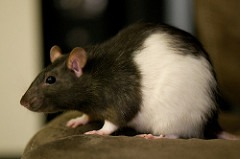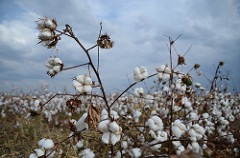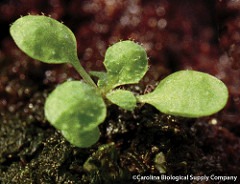
GM/Biotech Crops Report – July 2018
9th July 2018- GM/Biotech Crops Monthly Reports (BELOW) form part of BCPC’s free three-tier Biotech Crops Info service.
- This service also includes a weekly round-up of news from around the globe – see BCPC Newslink GM Crops section.
- Plus – Free access database on over 300 GM/biotech products covering 23 crops in the global market visit BCPC’s GM/Biotech Crops Manual – Register here for free access.
Already registered? Click here
GM/Biotech Crops Monthly Report July 2018
 | New hope for paralysis victims A break in the spinal column means paralysis because when it heals the scar tissue formed prevents transmission of the nerve impulse. Now a team at Kings College, London have developed a gene therapy in rats to restore function of the nerve. They insert a gene that makes an enzyme to dissolve the scar tissue. |
|---|---|
| Anyone for a gene-edited bacon butty? Scientists have snipped a section of pig DNA out of their genome to make them immune to the respiratory disease PRRS which causes billions of losses to the pig industry every year – a powerful argument to get this meat n sale. |  |
 | Reduction of take-all damage Whilst not actually genetic engineering, long-term wheat trials at Rothamsted Research have indicated that informed selection of wheat varieties can not only reduce the effect of the take-all fungus in that crop, it can reduce the damage in subsequent wheat crops irrespective of the variety chosen. Once the responsible genes are identified, they can be selected for in future variety development. |
| Weeds need feeding too By engineering cotton so that it can metabolise phosphite into phosphate and then only applying phosphorus in the phosphite form, a team in the Texas University have created a form of cotton that can out-compete weeds that have developed herbicide resistance. |  |
 | Chinese scientists develop mutant cotton Because cotton is allotetraploid, mutations are hard to generate by normal techniques but by using CRISPR-Cas9 editing of specific genes Chinese scientists have developed a technique and identified two lines that show Verticillium resistance. These lines can be used to develop commercial varieties with this resistance. |
| Boosting plant defence mechanisms A team from York and Warwick Universities have developed a method to re-wire Arabidopsis defence mechanism to create a feedback that increases responses to pathogen attack. Now it needs to be transferred to some crop plants. |  |
 | A new type of photosynthesis Plants look green because they absorb red light to power their chlorophyll but now a type of photosynthesis that makes better use of infra-red wavelength light has been identified in blue-green algae. |
| Gene editing improves starch content of sweet potato By over-expressing a specific gene in sweet potato, a team in China have improved both the quantity and quality of the starch found in this plant. The gene responsible is present in other crops and so the technique should be applicable to a range of crops. |  |
THE LATEST ADDITIONS TO THE GM/BIOTECH DATABASE ARE:
- Z3496 – oilseed rape with glyphosate tolerance approved for food and feed use in Malaysia.
- MZIR098 – maize with Coleopteran insect resistance and tolerance of glufosinate approved for food and feed use in Malaysia.
- MON87427 – maize with glyphosate tolerance approved for food and feed use in Malaysia, food, feed and environmental use in Brazil and feed use in Singapore.
- Event 1 – cotton with Lepidopteran insect resistance approved for food, feed and environmental use in Ethiopia and Swaziland.
- MON87708 x MON89788 x A5547-127 – soybean with tolerance of glufosinate, glyphosate and dicamba approved for food use in Taiwan.
- KK179 x J101 – alfalfa with altered lignin content and tolerance of glyphosate approved for food, feed and environmental use in Argentina.
- MON87708 x MON89788 – soybean with tolerance of glyphosate and dicamba approved for food, feed and environmental use in Argentina.
FOR INSTANT ACCESS TO GM BIOTECH MANUAL CLICK HERE (Registration required)
Already Registered? Click here to access

